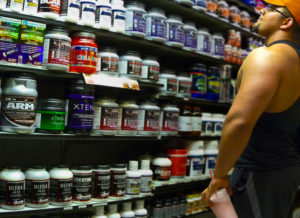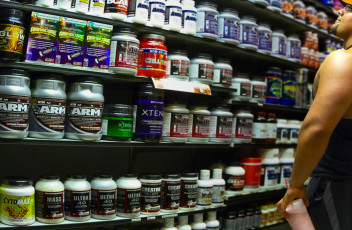We always prefer the best for ourselves and our loved ones. The best money can buy! Think about the latest iPhone or Samsung Galaxy. Or perhaps the latest car, TV, or sneakers. Surely the latest, with the best advances in technology, will always be the better option for us. But what about nutrition and exercise?
Latest in Supplements and Nutrition

Here’s something interesting. If something has been available and consumed for generations, then you cannot patent it. So in the field of Nutrition, just like in any other business, you need to create a “barrier of entry” to prevent others from eating your market share. The easiest way to create a barrier of entry is simply to incorporate a patented new compound in the product and claim this new compound will help you become leaner, stronger or more muscular.
Why You Should Not Get The Latest

The human body is incredibly complicated. What might show up as something positive in the near term could be negative in the long term. Think of steroids and how it was commonly used throughout the 1960’s through 1970’s legally by professional athletes. The drug makes you leaner, stronger and more muscular. However, google search on the fate of the top 10 bodybuilders in that era and you will find that over 50% of them later developed coronary heart diseases. We only know of steroid’s side effect on artery plaque build up many years after it became popular.
The same can be said about soybean oil, once hailed as a wonderful healthy oil over three decades ago, only to recently been discovered as being incredibly bad for your waistline. Beta-Alanine first came out over a decade ago and is still being marketed to this day as bodybuilding supplement, despite the fact that its a proven Taurine inhibitor, another supplement we commonly see in energy drinks. Hence consuming a new compound that has not been available on the market over the past 3 decades simply means being part of the said compound’s test experiment.
The Best Type of Supplements

The difference between supplements and medicine is that supplements are not used to heal any disease. Another thing is that supplements are meant to be taken continually over a long period of time, unlike medicine that is only taken over very a short period. People take supplements to become better version of themselves. Unless you are a professional athlete that must be better than the competition to earn an income, it is simply best to use supplements that has been proven to have no harmful side effects over long term consumption. This is why Magnus Whey only uses ingredients that have been proven to be beneficial at the proven dosage.





















